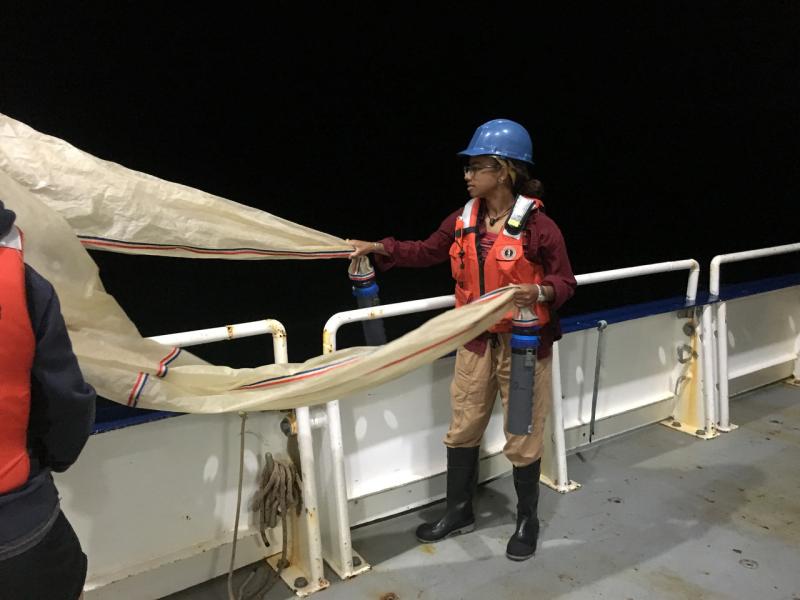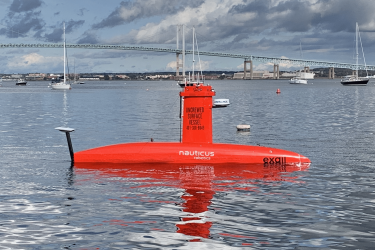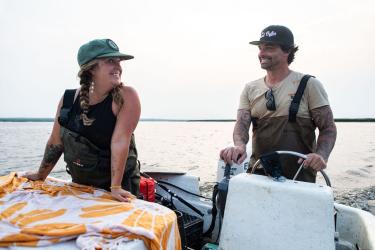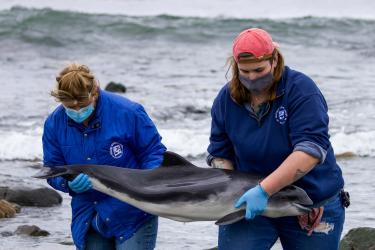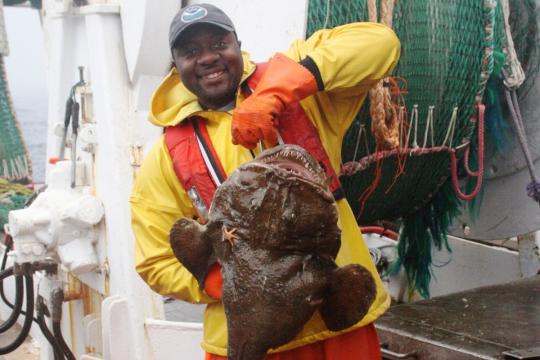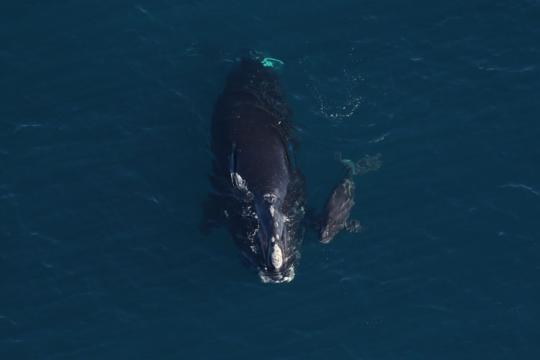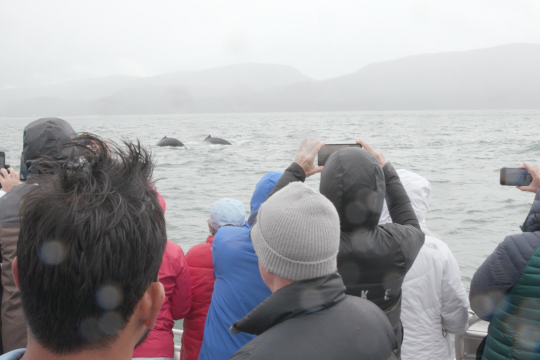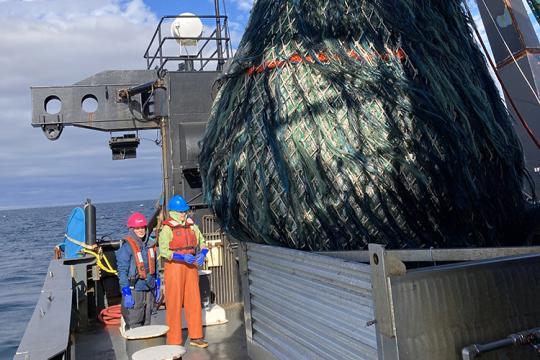“Much of what I learned during my PEP experience has directly translated into research skills and practices that I use in my current job and career as a marine biologist.” - PEP Graduate
The Partnership Education Program (PEP) combines undergraduate course work with research in marine and environmental science. The application deadline is February 15, 2020, and this year’s program runs from May 31–August 7.
“We are looking forward to bringing our twelfth PEP class to Woods Hole in the summer of 2020,” said George Liles, who directs the PEP program and the NOAA Northeast Fisheries Science Center’s Academic Programs Office.

Since 2009, 167 students have participated, and many have gone on to careers in research, teaching, and industry. Program graduates have earned advanced degrees, including at least 23 masters and four doctorates. Some PEP alumni are teaching in high schools and colleges, and others are working as biologists for towns, states, tribes, and the federal government.
Last year PEP hosted 14 students from 12 different colleges or universities. Seven of the schools were new to the program, bringing the total to 99 colleges or universities—including 31 minority-serving institutions—that have participated in PEP since its launch in 2009.
In June 2019 the program celebrated its 10th anniversary with a weekend of activities for PEP alumni and current students in Woods Hole. A weekend workshop on optimizing the undergraduate research experience attracted 120 scientists and administrators from around the country. The workshop was funded by the National Science Foundation with additional support from NOAA and from the Woods Hole Diversity Initiative.
PEP Combines Course and Research Internship

The Partnership Education Program is designed for college students. Priority is given to entering juniors and seniors majoring in the natural sciences, engineering, mathematics, or social sciences. Applicants must also have completed some course work in oceanography, biology, or marine and/or environmental science.
The program includes a 4-week course and a 6 to 10-week research internship. Each student has a research mentor to guide them on their research project. They also have a program mentor to provide guidance, support, and career advice during the summer.
An Eye-Opening Adventure
“PEP was a big deal for me, an introverted rising undergraduate senior, to be a part of, especially living and studying alongside others from so many different places,” said Christina Guidoboni Lovely, a member of the first PEP class in 2009 and now the marine fisheries biologist for the Town of Falmouth, Massachusetts. “While I wouldn't realize it until years later, PEP gave me a confidence boost. It allowed me to grow my interpersonal skills and form some incredibly strong bonds with some amazing people.”
PEP students live together on the Sea Education Association campus and participate in group career-building activities such as seminars, workshops, field trips, and at-sea experiences. They also attend lectures at partner science institutions throughout the summer and take part in local community activities.

“The SEA staff looks forward every year to the arrival of the PEP students,” said Peg Brandon, president of the Sea Education Association. “We look forward to hosting the students on the SEA campus, taking them on a research cruise aboard the Corwith Cramer, and helping incorporate these talented students into the Woods Hole science community.”
The 4-day research cruise aboard the Sea Education Association’s 134-foot sailing vessel Corwith Cramer was added to the program in 2018. The voyage gives students a taste of life at sea. They learn to sail and to gather oceanographic and biological data that they later use in their course work. A similar cruise is planned in 2020.
“I absorbed priceless knowledge from numerous diverse scientific disciplines from my time there, both from peers and mentors. PEP shaped my passion towards aquaculture,” said Sean McNamara, a 2012 PEP graduate who is now the lead aquatic technician for Iwaki Aquatic. The firm, based in Holliston, Massachusetts, creates and services aquatic lab animal systems across North America. “PEP was an amazing experience that truly shaped who I am today.”
Application Deadline is February 15, 2020
The 2020 PEP program will run from May 31 through August 7. The PEP course “Ocean and Environmental Sciences: Global Climate Change” is offered for credit through the University of Maryland Eastern Shore. It runs from June 2 to 26. Research scientists from local science institutions teach the course in Woods Hole.
Students conduct research projects that employ techniques and explore issues presented in the course. At the end of the program, the students present results from their research in a 20-minute public presentation during a one-day seminar on August 7.

PEP welcomes applications from students of all backgrounds. Students from groups underrepresented in marine and environmental sciences are especially encouraged to apply. This includes African American, Hispanic American, Native American, Asian Pacific Island, and Alaska Native students.
The 2020 program will cover tuition and room and board, as well as provide a travel allowance and a stipend. PEP will announce the 2020 class in mid-March.
View application information and reports on previous programs
PEP is a project of the Woods Hole Diversity Initiative. Participating institutions include:
- NOAA’s Northeast Fisheries Science Center
- Marine Biological Laboratory
- Sea Education Association
- U.S. Geological Survey
- Woods Hole Oceanographic Institution
- Woods Hole Research Center
The Woods Hole Diversity Initiative's primary academic partner is the University of Maryland Eastern Shore.
For further information, contact PEP Director George Liles at NOAA Fisheries at (508) 495-2318 or Dr. Paulinus Chigbu at the University of Maryland Eastern Shore at (410) 621-3034.
